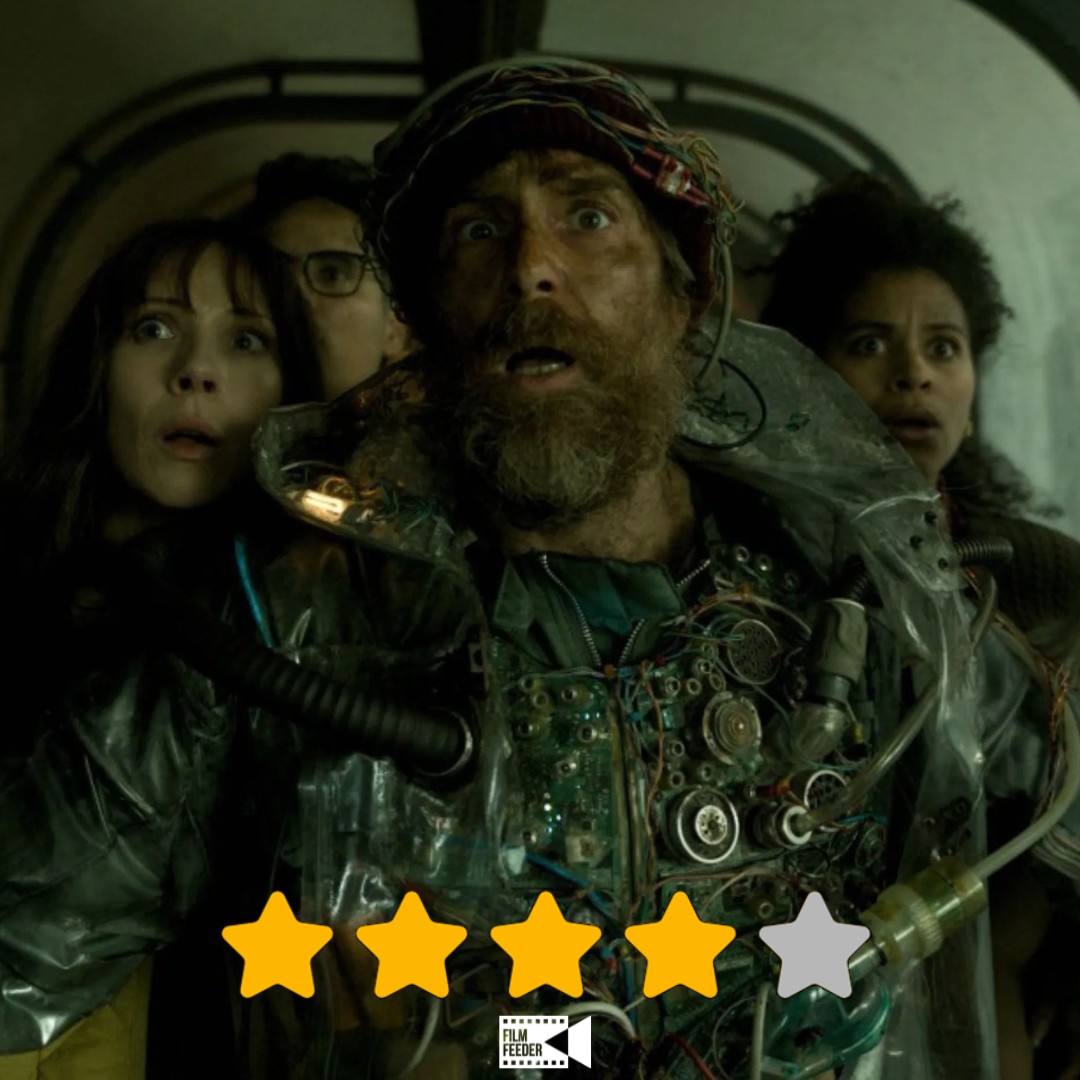
Perfect Days (2023, dir. Wim Wenders)
Certificate: PG
Running Time: 125 mins
UK Distributor: MUBI
UK Release Date: 23 February 2024
WHO’S IN PERFECT DAYS?
Kōji Yakusho, Tokio Emoto, Arisa Nakano, Aoi Yamada, Yumi Asō, Sayuri Ishikawa, Tomokazu Miura, Min Tanaka
WHO’S BEHIND THE CAMERA?
Wim Wenders (director, writer, producer), Takuma Takasaki (writer, producer), Koji Yanai (producer), Franz Lustig (cinematographer), Toni Froschhammer (editor)
WHAT’S IT ABOUT?
A Tokyo toiler cleaner (Yakusho) leads a carefully structured life…
WHAT ARE MY THOUGHTS ON PERFECT DAYS?
Lately, it’s been quite a good time to be a fan of Japanese cinema, with the likes of Godzilla Minus One and Hayao Miyazaki’s The Boy and the Heron all making waves internationally over the last year, while new films by local auteurs Hirokazu Kore-eda and Takashi Miike are firmly on their way to overseas markets. However, as great as some of those may be (to where at least one of them made my personal top 10 list for 2023), perhaps the most soulful, artistic and profoundly beautiful movie of the lot, is the one made by someone who isn’t even Japanese.
That would be Wim Wenders, the German filmmaker who over his fifty-plus year career has become known for a wide variety of films, from arthouse wonders like Wings of Desire and Paris, Texas, to insightful documentaries like Buena Vista Social Club and even as recently as the 3D artist picture Anselm. He is often regarded as a rather spiritual and poetic storyteller, which are traits he puts to mesmerising use for his Tokyo-bound narrative feature Perfect Days, a gorgeous slice-of-life drama that values life in all of its precious glory, no matter how small and insignificant it may be to everyone else.
The film, which Wenders also co-wrote with screenwriter Takuma Takasaki, follows the life of a man named Hirayama (Kōji Yakusho), who lives a very simple but carefully structured life. Every morning, he wakes up nice and early before heading to work as a cleaner of public toilets, then during his lunch break, he sits in a park taking pictures of the trees above him with his old camera, and after work is done for the day he visits a bathhouse to freshen up, eats at a local food joint and finally heads home, reading more pages of a book before then calling it a night.
It’s more or less the same for Hirayama the day after, and the day after that, but he doesn’t really care. It is a routine that Hirayama is clearly happy to follow, and one that he has evidently spent a great deal of time perfecting, to where the slightest unplanned detour or unexpected appearance/non-appearance of close ones can throw him out of loop for the rest of the day. However, even when that does happen – such as the surprise arrival of his teenage niece Niko (Arisa Nakano), or his far less competent co-worker Takashi (Tokio Emoto) selfishly hijacking his van to take out his date after his motorcycle stalls – Hirayama rarely, if ever, complains or even views his life as a rotten state of endless misery.
On the contrary, he loves it, and constantly finds joy and pleasure in the little things he comes across during his day, from playing an ongoing game of tic-tac-toe with an unknown toilet user, to listening to the likes of Van Morrison, Patti Smith and Lou Reed (who, of course, sang the song that this film uses as its title) on his many old cassette tapes as he drives across the city for work.
As someone with autism who greatly values certain routines, I found Perfect Days to be an unexpectedly cathartic viewing experience. Although there is no evidence that the character of Hirayama is on the spectrum, he is someone who undoubtedly displays signs of reserved frustration whenever he is thrust outside his set path, which in my experience as an autistic person is fairly common to go through. I identified immensely with his frustrations as things just do not go as planned, but also with how he nonetheless attempts to find optimism in things that may mean nothing to anyone else but mean the absolute world to him, kind of like how I often enjoy writing and talking about films even when nobody around me could care about the latest movie by filmmakers they aren’t bothered to learn more about.
Seeing the importance of routine be represented in this film as such a gently empowering and celebratory fashion was euphoric for me, because a lot of other movies tend to show any repetitive structure as a mechanical cycle to be escaped from, which might work for some people but for others like myself it’s one of the few things that get us up every morning.
As you might expect from a vastly experienced filmmaker like Wim Wenders, it is also a very well-made piece of cinema that constructs a mountain out of its soulful and poetic nature. The loose slice-of-life narrative – comprised of four brief stories originally developed as short films before Perfect Days became a feature – allows the filmmaker to focus on minor details which represent the bliss that Hirayama gets out of his constructed daily routine, with Wenders also employing some mesmerising abstract visuals during regular interludes as the protagonist settles into his dreams, which calmly show his content for his lifestyle as well as how much it clearly means to him.
Hirayama himself is a man of very few words (in fact, I don’t think he has more than thirty lines of dialogue in the entire film), but actor Kōji Yakusho, who won the Best Actor prize for this film at last year’s Cannes Film Festival, beautifully conveys enough of the character’s drive that make him endlessly interesting despite the lack of traditional characterisation, right up to an incredibly acted final shot that’s a close-up of his face where you feel every single conflicting emotion going on inside his head.
This is, ultimately, a truly beautiful film about finding happiness in the smallest of things, as well as within the pleasant and constructive structure of a simple daily routine. Those looking for something more narratively driven might not exactly get that here, but instead they will find themselves absorbed into the plentiful life of someone who has no real qualms with the world, nor does he need to when he’s already worked out the meaning of life, even if it is just his own.
It comes highly recommended, especially if, like me, you have an autism diagnosis and want to show someone exactly how and why having a strict routine is beneficial to one’s own sense of joy.
SO, TO SUM UP…
Perfect Days is a beautiful and soulful slice-of-life drama from filmmaker Wim Wenders that shows the importance and unexpected joys of a daily routine, with some gorgeously gentle filmmaking and an absorbing lead performance by Kōji Yakusho turning into an unmissable viewing experience.














0 Comments